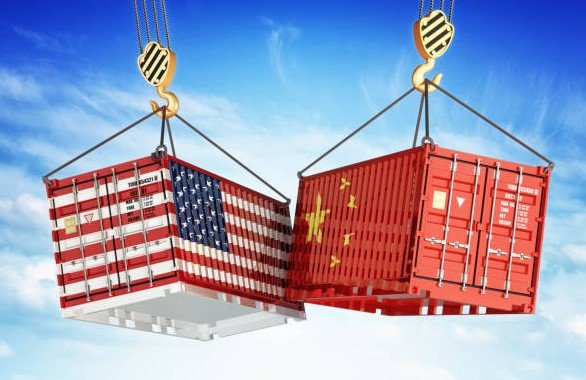President Donald Trump has threatened to slap a 100 percent tariff on Chinese imports starting November 1, 2025, in response to Beijing’s new export curbs on rare earth minerals. This move escalates the ongoing trade war, sparking fears of higher volatility in global stock markets and a prolonged period of consolidation, as experts warn of disruptions in key sectors like technology and defense.
Rare Earth Dispute Fuels Trade Tensions
China’s recent restrictions on rare earth exports target materials vital for making chips, batteries, and military equipment. These curbs, announced just days ago, affect global supply chains since China controls about 90 percent of the world’s rare earth processing.
Analysts say this is Beijing’s way to counter U.S. pressure on trade and technology. The restrictions come amid rising geopolitical strains, with both sides using economic tools to gain leverage.
Trump’s response, posted on his social media, called China’s actions hostile and promised massive tariffs to protect American interests. This back and forth has revived memories of earlier trade battles that shook markets in previous years.

Market Reactions and Immediate Fallout
Global stock indexes dropped sharply after the announcements. U.S. markets alone saw losses estimated at two trillion dollars in a single day, as investors worried about supply shortages.
Tech stocks, especially those in semiconductors and electric vehicles, took the biggest hits. Companies relying on rare earths for magnets and other components face potential production halts if the dispute drags on.
In Asia, markets in Japan and South Korea also fell, given their dependence on Chinese supplies for electronics manufacturing. European indexes showed mixed results but leaned toward caution.
Here are some key market drops observed:
- Dow Jones Industrial Average: Down 3.2 percent
- Nasdaq Composite: Fell 4.1 percent, led by chipmakers
- Shanghai Composite: Dropped 2.5 percent amid retaliation fears
Expert Views on Prolonged Consolidation
Ashwini Shami, a portfolio manager at OmniScience Capital, told a financial news outlet that these developments could keep markets in a consolidation phase. He pointed out that tariffs and export curbs act as weapons in a battle for dominance, with no quick resolution in sight.
Shami highlighted sectors like military and semiconductors as most at risk, due to their heavy reliance on rare earths. He expects broader indexes to face downward pressure, leading to choppy trading without clear trends.
Other experts agree, noting that similar events earlier in 2025 caused weeks of flat market performance. They advise investors to watch for any signs of talks between Trump and Chinese leaders, which could ease tensions.
Potential Impacts on Key Industries
The rare earth curbs threaten to disrupt several critical areas. For instance, the auto industry could see delays in electric vehicle production, as batteries need these minerals.
Defense contractors might struggle with supplies for weapons and radar systems. This could force the U.S. to speed up efforts to develop domestic sources, a process that takes years.
On the economic side, higher tariffs might raise costs for consumers and businesses, fueling inflation concerns. Some predict a shift toward alternative suppliers in countries like Australia or Vietnam.
| Industry | Potential Impact | Mitigation Steps |
|---|---|---|
| Semiconductors | Supply shortages for chips | Diversify sourcing, invest in recycling |
| Electric Vehicles | Battery production delays | Boost domestic mining, seek alliances |
| Defense | Halts in weapon manufacturing | Government stockpiles, new tech R&D |
| Consumer Electronics | Higher prices for devices | Shift to non rare earth alternatives |
Global Ramifications and Future Outlook
Beyond markets, this dispute could reshape international trade. Allies like the European Union have expressed concerns, urging dialogue to avoid a wider economic slowdown.
Recent events, such as China’s antitrust probe into a U.S. chip firm, add to the friction. If tariffs go through, Beijing has vowed strong countermeasures, potentially targeting American exports like soybeans or aircraft.
Looking ahead, a possible meeting between Trump and Xi Jinping might offer a path to de escalation. But with both sides digging in, experts foresee ongoing uncertainty through the end of 2025.
As this story develops, it raises questions about long term supply chain security. Investors and businesses should stay informed and consider hedging strategies to navigate the volatility.
What do you think about Trump’s tariff threat and its market effects? Share your thoughts in the comments below, and pass this article along to others interested in global trade news.
